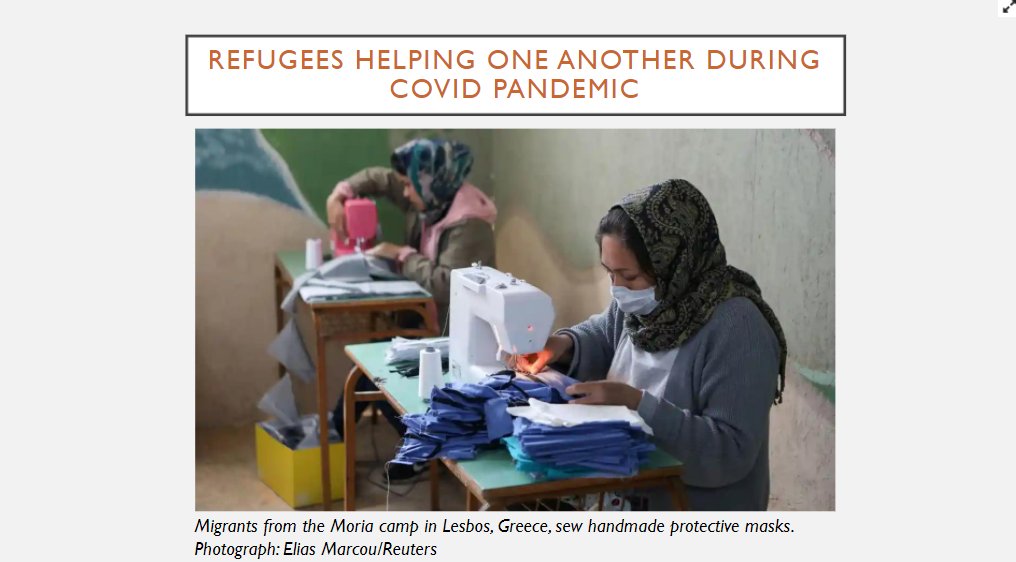What can we learn from psychiatry in conflict and disaster zones? Three talks from members of the College's Volunteering and International Psychiatry Special Interest Group @psychvolunteer, chaired by Dr Sophie Thomson at #RCPsychIC 

@psychvolunteer Starting with @LynneJonespsych, who explains that humanitarian psychiatry in the 90s was much different - 'everyone has PTSD, so let's give them counselling, and that's that'. Even in Iraq 2003, there was plenty of money - but it all went on PTSD. #RCPsychIC 

@psychvolunteer @LynneJonespsych Western approaches to psychiatry were often culturally inappropriate - 'talking about feelings' may not work where the norm is rather close family bonds, and stoicism is expected, says @LynneJonespsych at #RCPsychIC 

@psychvolunteer @LynneJonespsych Natural disasters are 'somewhat easier' than warzones - unless your natural disaster is directly after another one, or just before Christmas. Unfortunately, the reality is some disasters get international attention, and some don't. #RCPsychIC 

@psychvolunteer @LynneJonespsych What happens after an intervention? Looking at Haiti in 2020, there is still plenty to be done. We did not 'build back better'. And these things are going to get worse - climate-fuelled disasters are the number one driver of internal displacement. #RCPsychIC 



@psychvolunteer @LynneJonespsych At exactly the moment we most need to help people and stick to our commitments, the Prime Minister has said that we need to use our aid budget, but he's not doing that. "The gap between words and action has never been wider," says @LynneJonespsych at #RCPsychIC 

@psychvolunteer @LynneJonespsych We need to address the issue of HOW we provide humanitarian needs – in many cases it's refugees helping refugees that is making the biggest difference. We may also need to stop thinking about aid, and start thinking about reparations, says @LynneJonespsych at #RCPsychIC 



@psychvolunteer @LynneJonespsych Now we have Dr Peter Hughes speaking from the College itself. He mentions Gaza, one of his favourite places - because of the people. But also a place where a rocket explosion is considered part of daily life, says Dr Hughes. #RCPsychIC 



@psychvolunteer @LynneJonespsych But juxtaposed against explosions and other exceptional events, there's the normal, mundane events. Both of these can cause extremely difficult situations for people. And the high rate of mental health issues exacerbates socioeconomic problems. #RCPsychIC
@psychvolunteer @LynneJonespsych Dr Hughes says his main tool is the mhGAP, which focuses on training for non-specialists in mental health issues, as well as with neurological and substance misuse cases. #RCPsychIC 

@psychvolunteer @LynneJonespsych Final lessons from Dr Hughes – "listen to the people" and make sure to use all the valuable skills you gain when and if you return to the NHS. #RCPsychIC 



@psychvolunteer @LynneJonespsych Our last speaker in this session is @Ani5Ahmed talking about 'distant volunteering' – volunteering remotely in Rohingya refugee camps. He's been doing most of his work from his own desk, but around the world. #RCPsychIC 



@psychvolunteer @LynneJonespsych @Ani5Ahmed Dr Ahmed wondered what he could do to help Bangladesh, using mhGAP and psychological first aid. Some lessons - be prepared, know your tools. And be ready for 'volunteer shock' - there may be haunting, harrowing stories of violence you're not ready for. #RCPsychIC
@psychvolunteer @LynneJonespsych @Ani5Ahmed The second lesson is the important of field visits, and understanding the ecology of the area - know the available facilities, understand the culture – spirituality is often one of the ways people deal with difficult situations, says @ani5ahmed at #RCPsychIC 

• • •
Missing some Tweet in this thread? You can try to
force a refresh














